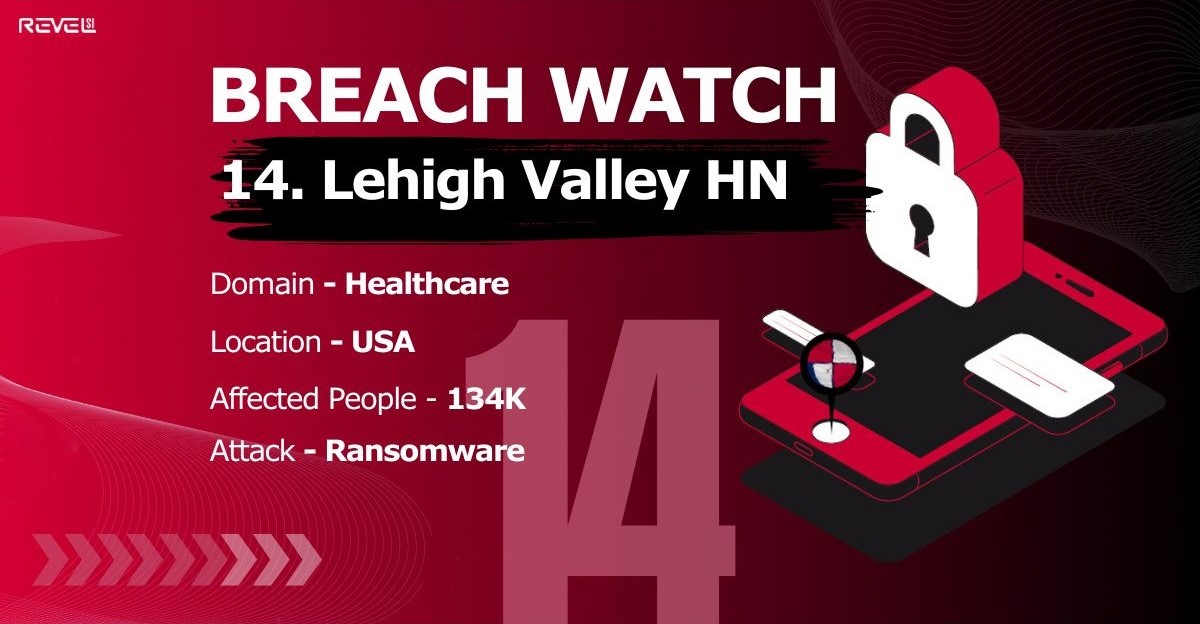Lehigh Valley Health Network Ransomware Attack

Incident Overview
In February 2023, Lehigh Valley Health Network (LVHN) was targeted by the BlackCat/ALPHV ransomware group. Using advanced tactics, the attackers infiltrated systems supporting the Delta Medix facility, compromising a server that stored sensitive patient data, including medical images used in oncology treatments. LVHN refused the $5 million ransom, leading to the public release of sensitive patient data.Data Compromised
The breach affected approximately 134,000 individuals, exposing: Personal identifiers: Names, addresses, phone numbers, Social Security numbers, and driver’s license details.Health data: Medical records, treatment and diagnosis information, and clinical images, including highly sensitive photographs of cancer patients. Financial details: Health insurance information and banking data.
Impact and Risks
This attack demonstrates the risks ransomware poses, particularly in healthcare:Privacy violations: Exposure of intimate medical details, such as treatment-related images, has profound psychological and reputational impacts. Financial risk: Stolen financial information could lead to fraud and identity theft.
Operational disruption: Attacks on healthcare systems can disrupt critical patient care.
Technical Insights and LVHN’s Response
Attack Vector: BlackCat is a highly adaptable ransomware known for its stealth capabilities and efficiency in encrypting data across platforms. It targeted LVHN's IT systems, exploiting vulnerabilities in servers storing patient data. Detection and Containment: The unauthorized activity was detected on February 6, 2023. LVHN’s IT team immediately secured their systems and engaged cybersecurity experts to investigate and mitigate the breach. Mitigation: - Affected individuals were offered two years of Experian IdentityWorks protection. - LVHN has since enhanced its cybersecurity protocols, including system upgrades and advanced threat detection tools.Settlement: In September 2024, LVHN agreed to a $65 million class-action settlement, one of the largest per capita in U.S. healthcare data breaches.
Key Takeaways for Organizations
Fortify Systems: Implement robust encryption, MFA and routine patch management to reduce vulnerabilities. Prepare for Advanced Threats: staying ahead requires advanced detection tools and AI-driven analytics.Educate Teams: Train employees to identify phishing emails and other social engineering tactics often used to gain initial access. Incident Response Planning: Establish and regularly test a comprehensive incident response plan to ensure quick and effective containment. Transparency Matters: Timely and clear communication with affected parties is critical for maintaining trust.
What measures are you implementing to enhance your organization’s cybersecurity?
Stay safe, stay ahead!
